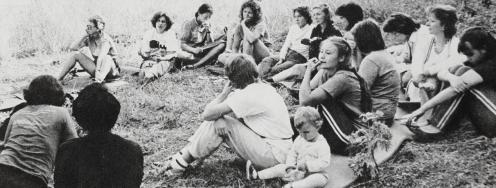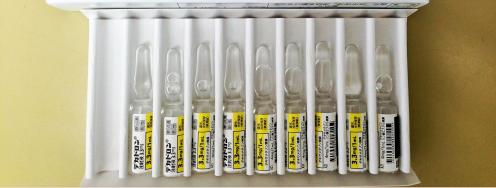Taking the bang out of nuclear weapons
by Daryl G. Kimball
In a stirring speech delivered in Prague a week ago, U.S. President Barack Obama outlined his vision for strengthening global efforts to curb the spread of nuclear weapons, moving forward on long-overdue disarmament measures and preventing nuclear terrorism. Most important, he articulated "America's commitment to seek the peace and security of a world without nuclear weapons."
Obama's speech signals a fundamental and important transformation in U.S. thinking about nuclear weapons. He is not simply pledging to "pursue" nuclear disarmament, as past U.S. presidents have done regularly since Lyndon Johnson, but to make the elimination of all the world's nuclear weapons a central goal of U.S. nuclear policy.
Days earlier in their joint statement issued in London, President Dmitry Medvedev joined Obama in committing "to achieve a nuclear-free world while recognizing that this long-term goal will require a new emphasis on arms control and conflict-resolution measures and their full implementation by all concerned nations."
In the near term, Obama pledged that he will start the U.S. nuclear policy by negotiating with Russia on a new treaty by the end of this year that would dramatically cut U.S. and Russian strategic nuclear arsenals -- which still number about 2,000 to 2,500 that are deployed by each side.
That negotiation will be tough, but it is necessary given that the 1991 Strategic Arms Reduction Treaty, or START, expires on Dec. 5. The two sides will likely set lower limits on deployed strategic warheads -- to 1,500 or below on each side -- and the missiles and bombers used to deliver them. This will be accompanied by streamlined verification and monitoring provisions similar to the ones that are stipulated in START.
Obama and Medvedev also pledged to seek a new treaty to end the production of fissile materials that are intended for nuclear weapons. In addition, both sides expressed their commitment to the Comprehensive Test Ban Treaty, which requires ratification by the U.S. Senate and eight other countries.
These are all practical, overdue steps that would strengthen international security, especially the Comprehensive Test Ban Treaty. By banning the "bang," the test ban treaty makes it harder for nations already possessing nuclear weapons to field new, more sophisticated nuclear warheads. For instance, without additional testing, China cannot perfect the technology to arm its missiles with multiple warheads.
Given the existing U.S. and Chinese nuclear test moratoria and 1996 decision to sign the test ban treaty, Washington and Beijing bear most of the treaty-related responsibilities. Yet their failure to ratify it diminishes their ability to prod other nations to join the treaty, refrain from testing and improve capabilities to detect and deter clandestine testing.
At the same time, there is neither the need nor any political support for renewed U.S. testing for new nuclear warhead design purposes. The United States stopped testing in 1992, but since technical advances in the U.S. stockpile stewardship program have increased confidence in the reliability of the existing arsenal, Obama has pledged "not to authorize the development of new nuclear weapons." With consistent and smart presidential leadership, securing the Democrat-controlled Senate support for U.S. ratification of the test ban treaty before the end of 2010 is clearly within Obama's reach.
In Prague, Obama also said that "to put an end to Cold War thinking, we will reduce the role of nuclear weapons in our national security strategy and urge others to do the same." That's a hint that significant changes will emerge from the nuclear posture review that is due at the end of this year.
Obama may decide that the only purpose of nuclear weapons is to deter their use and that they should never be used or threatened to counter conventional attacks. Given that no other state possesses more than 300 nuclear bombs, that simple shift in U.S. nuclear strategy would facilitate far deeper reductions in U.S. and Russian arsenals -- to 1,000 total nuclear warheads each in the next five years -- and open a path for multilateral disarmament talks involving other nuclear-armed states.
To get to that point, however, Russia (as well as other members of the nuclear club) must also be willing to adjust their thinking and policies regarding nuclear weapons. Since the end of the Cold War, Russia has increased the emphasis on nuclear weapons in its security strategy as a hedge against the eastward expansion of NATO, the 200 remaining U.S. tactical warheads stored in six NATO countries and China's small nuclear arsenal. This has led Russia to hold on to its sizable arsenal of tactical nuclear warheads, which independent experts estimate to be as high as 8,000.
In reality, the overwhelming destructive power of these weapons make them inappropriate for use in conflicts with non-nuclear adversaries, and Russia's formidable strategic nuclear arsenal is more than sufficient to deter an attack from any potential nuclear-armed adversary. NATO countries and Russia should agree to put tactical nuclear weapons on the negotiating table and begin a process of accounting for and eventually dismantling these obsolete systems.
Agreement on U.S. and Russian strategic nuclear reductions well below 1,500 warheads for each side will be difficult as long as Russia is concerned about the possible deployment of U.S. missile defense interceptors in Central Europe. While Obama said he will go forward with a missile defense system that is "cost-effective and proven" to deal with missile threats that might emerge from North Korea and Iran, the potential interceptor system in Poland hasn't even been tested, much less proven. Given that it cannot be deployed for two to three years even if Obama seeks to do so, Washington and Moscow have time to work out a cooperative approach or agree to limits on the deployment of a missile defense system in Europe.
While the cynics and supporters of the nuclear status quo believe action toward a world free of nuclear weapons is an exercise in wishful thinking, they're wrong. The real fantasy is to expect better U.S.-Russian relations and a greater commitment to nonproliferation from other states without bold action on disarmament through a revitalized arms control framework.
Daryl G. Kimball is executive director of the Ploughshares-funded Arms Control Association in Washington.



